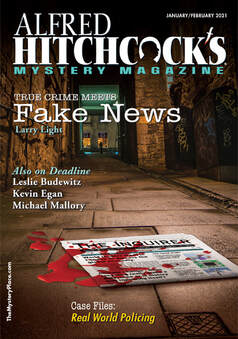|
2/28/2021 0 Comments My Favorite Dinosaur The Denver Museum of Nature & Science is open. The COVID-19 protocols are firmly in place. The best part of social distancing rules is that the museum is limiting the number of people who can visit. Special exhibits require reservations. Employees stand in the doorway, making sure the room does not exceed designated capacity. For a person who does not enjoy crowds, this is the best time to visit the museum. We spent a long time in the SUE: The T. rex Experience exhibit. Although the T. rex was the star, I gravitated toward my favorite dinosaur, the Triceratops. After admiring the best dinosaur, I enjoyed the film and displays imagining life in the time of Sue, and exploring what the fossils of this huge dinosaur tell us about his or her life.
0 Comments
2/16/2021 0 Comments Strange Happenings Around Town Driving on one of the busiest streets in my medium-sized city, I have been witness to odd things lately. A giraffe in a convertible was the latest. Before that was the Subaru carrying a stack of pallets - see below. I am sorry to report I failed to snap a photo of the grown man in Walmart wearing a bald eagle costume while purchasing Doritos. Or the fellow in the health food store wearing an entire dead racoon on his head. I don't get out often, so the chances of these random sightings are low. I can only conclude everyone has gone crazy.  I noticed a pattern in the stories I enjoyed most in this issue of AHMM. They are tales set in different eras. Maybe for me, escaping the reality of modern times requires a hard reset to Somewhere Completely Different. I became so involved with the characters in the 1950s historical mystery There's Nothing Funny About Murder, by Michael Mallory, that I was upset by the murder. The main character, Jewish comedian Mousie Ross, could carry the story himself. The introduction of well-written secondary characters made the story even more engaging. I especially liked the African American driver, Shifty Gierman. Who wouldn't? The wanna-be actor makes his stage debut with Mousie, until the slapstick turns deadly. Being a cozy author, I don't often deliberately delve into noir. Ticking of the Big Clock, by O'Neil De Noux, surely falls in that category. The romantic triangle is set in New Orleans during WWII. Spoiler alert - everyone in the story has an unhappy ending. Everyone. Well, maybe except for the cat. I had every indication the cat had her kittens successfully, and that the landlady will continue to providing her food and water. Other than the cat, the human characters finish this tale in utter disaster. Usually a happy ending fan, I enjoyed this story. Great writing, well-drawn characters, and a logical conclusion. Dark and sad, but logical. The hungry orphan pick-pocket in A Helping Hand, by R. T. Lawton, has learned hard lessons working the streets of Paris during the reign of Louis XIV. When he is recruited to be a helping hand to a gang by an older thief, he keeps a cynical and suspicious eye on his new partners. The young pick-pocket must stay two steps ahead of the game to avoid being cheated, or landing in prison. In the end, he works out a way to achieve his own goals, one of which is acquiring a loaf of bread and a sausage. Lawton has a way of making the reader cheer for this likeable criminal trapped by circumstance. You can read about the story in the author's own words here. We return to post-Civil War Montana with author Leslie Budewitz for Coming Clean. Former slave Mary Fields has hitched her wagon to the meager fortunes of the Ursuline Sisters of St. Peter's Mission. Mary uses her invisibility as a older Black woman on the frontier to listen and observe, enabling her to solve mysteries. One of the nuns has a secret, and is using blackmail of another Sister's secret to keep her quiet. Mary adds up the clues and her observations of the players, until one finally comes clean. Barb Goffman's A Family Matter is set in 1962. Doris is a busybody, a very unpleasant woman sharing her sour comments liberally, and tormenting a new arrival to the exclusive white collar community of The Glen. The husbands work at the pharmaceutical company while the women stay home and follow the rules as Doris dictates them. The story takes an unexpected turn when Doris decides she has to do something positive for a change. She realizes young mother Ginny is the victim of abuse, and that she has to do something about it. There are many more enjoyable short stories in the January / February 2021 issue of Alfred Hitchcock's Mystery Magazine, which do not have historical settings. And, in every issue, there is a non-fiction feature Real World Policing, by Lee Lofland. This month, Lofland explores how criminals are transported. |
Subscribe to this blog: |
Proudly powered by Weebly

 RSS Feed
RSS Feed